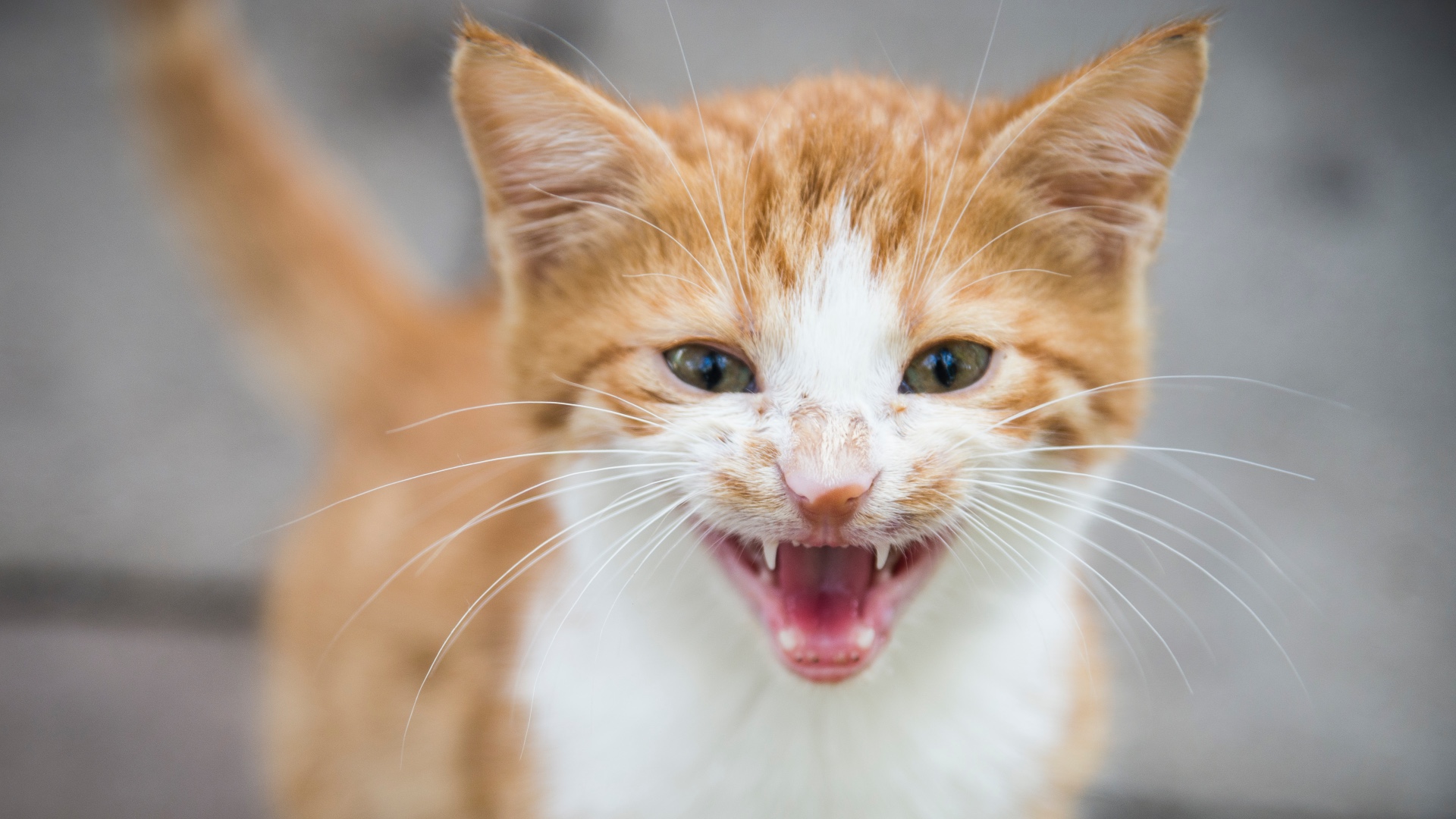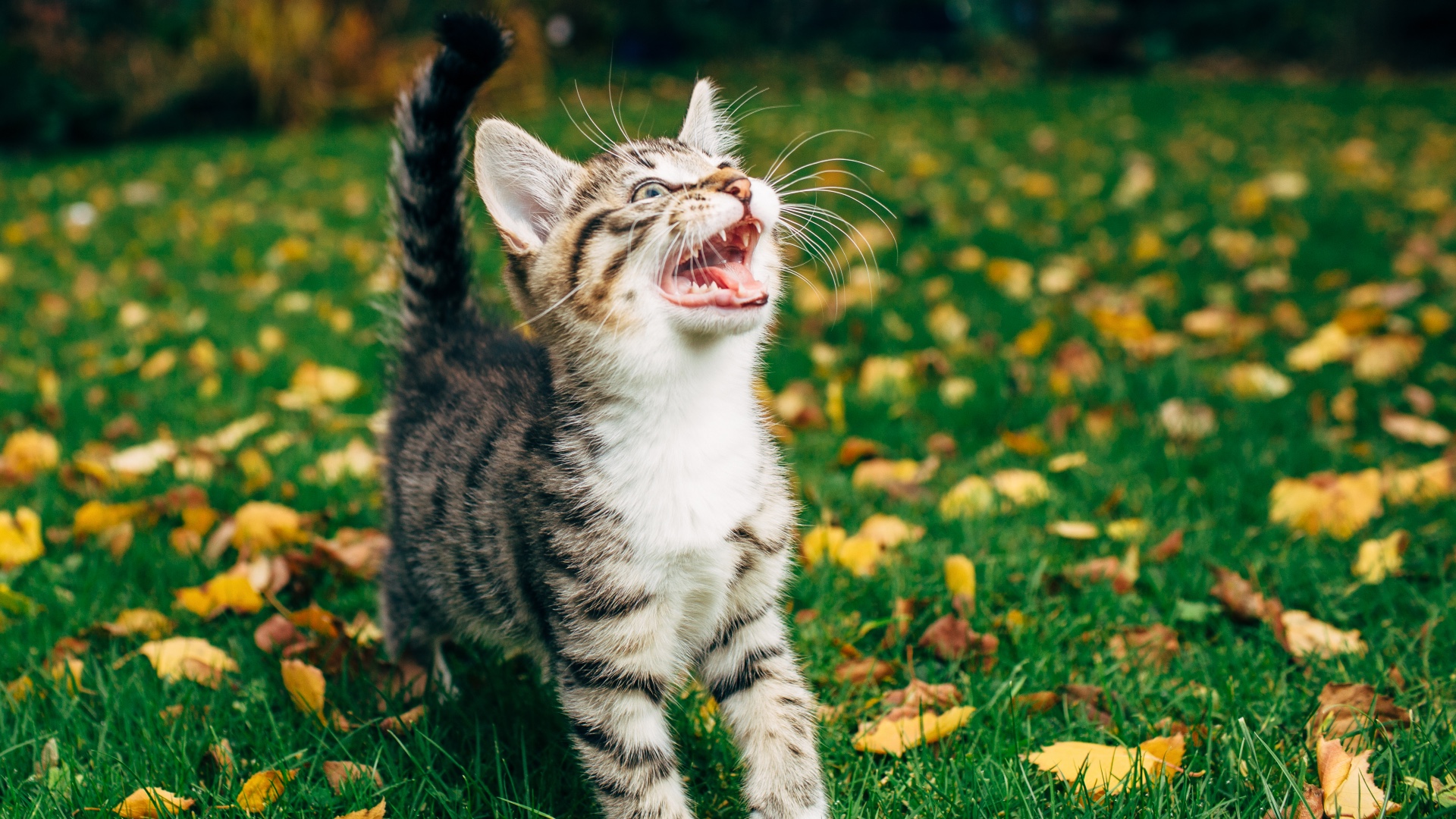Why is my cat meowing so much?
One question we vets get is “Why is my cat meowing so much?” So let's take a look.

If your cat is a chatterbox, you might have found yourself pondering the question “why is my cat meowing so much?” All cats are different – it’s normal for some cats to ‘talk’ more than others, whilst some cats only seem to find their voice at mealtimes. Knowing how much vocalization is too much can be difficult, but excessive meowing can be a sign of some medical conditions, so it’s a good idea to get to the bottom of what’s going on.
Is it normal for cats to meow a lot?
Some cats meow a lot, others barely meow at all. Every cat is an individual so it’s more important to think about what’s normal for your cat, rather than try to compare them to a friend’s feline. Some cat breeds are known for being vocal. Siamese, Bengals, and Orientals are some of the common cat breeds that are likely to be more vocal than others. Cats also use meowing as a way to communicate with humans, so if your cat meows around mealtimes or to wake you up in the morning, it’s likely this is normal.
Why do cats meow excessively?
There are lots of possible reasons why cats may meow excessively, both behavioral and medical. It’s normal for cats to meow a little, especially around feeding time. However, there are some causes of excessive meowing that are abnormal, so changes in meows should be investigated.
1. Hyperthyroidism
Hyperthyroidism is one of the most common causes of a cat meowing loudly and often. In hyperthyroidism, a benign tumor on the thyroid gland produces too much thyroid hormone. This causes a fast metabolism, hunger, vocalization, weight loss, and hyperactivity. It can be treated, but if ignored will progress and eventually become fatal. Hyperthyroidism is one of the reasons why you should take your cat to the vet if you notice they’re meowing more than normal, especially if you notice other signs.
2. High blood pressure
High blood pressure, or ‘hypertension’, is fairly common in cats. It can be caused by hyperthyroidism, heart disease, and kidney disease, but sometimes no cause is found. High blood pressure can cause neurological changes, causing a cat to meow excessively and even appear blind, or unsteady on their feet. Luckily, hypertension can be easily managed in most patients with daily medication, but if ignored will get worse, progressing to seizures and eventually death.
3. Feline Dementia
One of the causes of cats meowing a lot is feline dementia or ‘cognitive dysfunction’. As with humans, dementia tends to affect older cats and symptoms include meowing excessively, anxiety, and changes in sleep-wake patterns. Some medications can lessen the symptoms of dementia and may stop your cat from meowing all the time.
4. In heat (season)
It’s absolutely normal for a female cat in heat to yowl loudly, properly called ‘calling’. It’s a confusing sound – many owners assume their cat is in terrible pain! If your cat is female and not neutered, they’ll come into season every few weeks for most of the year, and will get very vocal. They’ll also have other behavioral changes and try to escape. Luckily, it’s easy enough to fix – spaying your cat to remove the hormones stops them from coming into season and prevents the noise that goes with it!
Get the best advice, tips and top tech for your beloved Pets
5. Trying to communicate with you

It’s thought that cats vocalize more when they’re around humans than when they aren’t. In fact, in cats that have no experience of humans, meowing is rare and usually only happens in kittens. Meowing is actually one of the ways that our cats have learned to get what they want from us. Whether your cat is demanding attention or asking for food, it’s likely they’ve learned to meow to communicate their needs. If your cat is meowing more than usual, try to think whether anything has changed in the house or in their needs that could explain why they want to talk to you.
6. Bored or under-stimulated
Boredom particularly affects younger cats and those that aren’t allowed free access outdoors. In the wild, cats would spend much of their waking hours hunting. Indoors, opportunities for hunting and entertainment are limited and cats can become bored and start to show signs of stress like excessive vocalization. If your cat is meowing more than usual but seems fine, consider whether you can make their day more exciting with food puzzles or more toys.
When are cats most likely to meow excessively?
When cats are most likely to meow excessively depends on their reason for meowing. Cats with medical conditions causing loud meowing usually meow without a pattern, at random points in the day. You might notice a bit more meowing at night if they have dementia, as their sleep-wake cycle changes. Of course, if your cat is communicating hunger or wanting to be let out, they’ll meow more at certain times of the day, such as in the morning or evening, or when you get in from work. It’s easiest to notice noisy meowing at night, when the rest of the house is quiet, but this could have several causes.
When should I be worried about my cat meowing?
If your cat has suddenly started meowing more than normal, you might be wondering when to take them to the vet. Unless you’re sure that your cat is only meowing to get your attention, taking your cat to the vet should be done sooner rather than later. Many of the medical causes of excessive meowing will get worse and cause other problems if not brought under control with medication, so swift action is essential.
What should you do when your cat won’t stop meowing?
If your cat has started meowing constantly and won’t stop, it’s best to head to the vets for a check-up. Ruling out some common medical causes is a sensible first step. If your female cat isn’t spayed yet, talk to your vet about scheduling a neutering operation to prevent further seasons.
Of course, if your cat is fine in himself, young, fit, and healthy, and there seem to be no other symptoms, you can observe for a few days before calling the vet to see if the excessive meowing stops. Try playing with your cat and giving them food in a puzzle feeder to entertain them and tire them out, and see if this stops the behavior.
You could also consider training your cat to be quiet. Much like training a dog to stop barking, this involves paying your cat attention only when they aren’t meowing. Don’t reward them with food, attention, or even eye contact until they’re quiet – ignore them completely. Even if you only get a short break in meows, choose that moment to reward your cat with a tasty treat. They’ll soon realize that shouting at you doesn’t work, but waiting quietly results in food!
There are lots of possible reasons why your cat is meowing so much, including some medical causes. However, you should only worry if meowing excessively is unusual for your cat. Some cats, and especially some breeds, are famous for being ‘chatty’, and this could be entirely normal for them. If in doubt, especially if you’ve noticed other changes in your cat’s behavior, you should head to the vets to get those loud meows checked out.
Read next: Why is my cat walking in circles?
After graduating as a vet from the University of Nottingham in 2016, Dr. Joanna Woodnutt went on to practice companion animal medicine in the Midlands. She quickly developed a love of consulting and helping clients with medical problems such as dermatology, behavior and nutrition - anything that involved helping clients understand their pets better.
Jo started writing about pet health in 2017, realizing that it meant she could help even more pet parents. Since then, she has written for countless online and print publications and is a regular contributor for Edition Dog Magazine. Jo is the director of The Veterinary Content Company, which she founded in 2020. She is also the founder of Petlearnia, a platform that provides pet e-learning courses for pet parents.
Jo now lives in the Channel Islands with her husband Ian and terrier Pixie.

